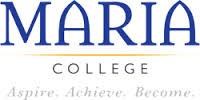What do they do?
Assist occupational therapists in providing occupational therapy treatments and procedures. May, in accordance with state laws, assist in development of treatment plans, carry out routine functions, direct activity programs, and document the progress of treatments. Generally requires formal training.
Also known as:
Acute Care Occupational Therapy Assistant (Acute Care OT Assistant), Certified Occupational Assistant, Certified Occupational Therapist Assistant (COTA), Certified Occupational Therapy Assistant (COTA), Licensed Occupational Therapist Assistant (LOTA), Licensed Occupational Therapy Assistant (LOTA), Occupational Therapist Assistant (OTA), Occupational Therapy Assistant (OTA), Registered Therapist Assistant, School Based Certified Occupational Therapy Assistant (School Based COTA)
-
31.4%
Change
Ranks #26 in job growth rate760Job Openings
Ranks #1 in net job growth
-
St Catherine University
Saint Paul, MN
-
Maria College of Albany
Albany, NY
-
Keiser University-Ft Lauderdale
Fort Lauderdale, FL
-
Eastwick College-Ramsey
Ramsey, NJ
-
Stanbridge University
Irvine, CA
Looking for colleges that offer a specific major? Use the College Match Tool to find your best-matched schools and discover your estimated Net Price!
- Doctorate or Professional Degree (1%)
- Master's degree (4%)
- Bachelor's degree (19%)
- Associate's degree (50%)
- Some college, no degree (14%)
- High school diploma equivalent (10%)
- Less than high school diploma (2%)
People in this career often have these skills:
- Active Listening - Giving full attention to what other people are saying, taking time to understand the points being made, asking questions as appropriate, and not interrupting at inappropriate times.
- Speaking - Talking to others to convey information effectively.
- Social Perceptiveness - Being aware of others' reactions and understanding why they react as they do.
- Service Orientation - Actively looking for ways to help people.
- Reading Comprehension - Understanding written sentences and paragraphs in work-related documents.
- Time Management - Managing one's own time and the time of others.
- Critical Thinking - Using logic and reasoning to identify the strengths and weaknesses of alternative solutions, conclusions, or approaches to problems.
- Monitoring - Monitoring/Assessing performance of yourself, other individuals, or organizations to make improvements or take corrective action.
People in this career often know a lot about:
- Customer and Personal Service - Knowledge of principles and processes for providing customer and personal services. This includes customer needs assessment, meeting quality standards for services, and evaluation of customer satisfaction.
- Psychology - Knowledge of human behavior and performance; individual differences in ability, personality, and interests; learning and motivation; psychological research methods; and the assessment and treatment of behavioral and affective disorders.
- Education and Training - Knowledge of principles and methods for curriculum and training design, teaching and instruction for individuals and groups, and the measurement of training effects.
- English Language - Knowledge of the structure and content of the English language including the meaning and spelling of words, rules of composition, and grammar.
- Therapy and Counseling - Knowledge of principles, methods, and procedures for diagnosis, treatment, and rehabilitation of physical and mental dysfunctions, and for career counseling and guidance.
- Public Safety and Security - Knowledge of relevant equipment, policies, procedures, and strategies to promote effective local, state, or national security operations for the protection of people, data, property, and institutions.
People in this career often have talent in:
- Oral Comprehension - The ability to listen to and understand information and ideas presented through spoken words and sentences.
- Oral Expression - The ability to communicate information and ideas in speaking so others will understand.
- Written Expression - The ability to communicate information and ideas in writing so others will understand.
- Problem Sensitivity - The ability to tell when something is wrong or is likely to go wrong. It does not involve solving the problem, only recognizing that there is a problem.
- Written Comprehension - The ability to read and understand information and ideas presented in writing.
- Near Vision - The ability to see details at close range (within a few feet of the observer).
- Deductive Reasoning - The ability to apply general rules to specific problems to produce answers that make sense.
- Information Ordering - The ability to arrange things or actions in a certain order or pattern according to a specific rule or set of rules (e.g., patterns of numbers, letters, words, pictures, mathematical operations).
- Speech Clarity - The ability to speak clearly so others can understand you.
People in this career often do these activities:
- Teach basic living or other adaptive skills to patients or caregivers.
- Teach medical procedures or medical equipment use to patients.
- Encourage patients during therapeutic activities.
- Prepare medical reports or documents.
- Communicate patient status to other health practitioners.
- Implement therapeutic programs to improve patient functioning.
- Monitor patient progress or responses to treatments.
- Record vital statistics or other health information.
- Maintain medical records.
- Develop patient therapy programs.
- Attend educational events to update medical knowledge.
- Assist patients with daily activities.
- Administer screening tests to determine abilities or treatment needs.
- Confer with other professionals to plan patient care.
- Clean medical equipment.
- Prepare medical instruments or equipment for use.
- Maintain medical equipment or instruments.
- Move patients to or from treatment areas.
- Make patient-assistive devices or device models.
- Teach medical procedures to healthcare personnel.
- Inventory medical supplies or equipment.
- Schedule patient procedures or appointments.
- Perform clerical work in medical settings.
- Process medical billing information.
This page includes data from:

 Occupation statistics: USDOL U.S. Bureau of Labor Statistics Occupational Employment Statistics
Occupation statistics: USDOL U.S. Bureau of Labor Statistics Occupational Employment Statistics









